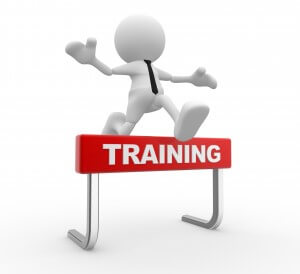The holy grail of any training is to ensure that the skills delegates develop are applied when they return to the workplace. Change is difficult and simply attending a one-day workshop may not result in delegates using the skills in their actual job. After Event Reviews (AERs) are a tool that can be used by the delegate’s line manager to promote transfer of learning.
workshop may not result in delegates using the skills in their actual job. After Event Reviews (AERs) are a tool that can be used by the delegate’s line manager to promote transfer of learning.
Without post-training consolidation, little learning transfer will occur. Line managers need to provide delegates with the opportunity to practice the skills taught by giving them specific tasks, activities or projects where the newly learnt skills will be needed. However providing such consolidation opportunities on their own is not enough, the manager also needs to help the delegate learn from these events – and that is where an After Event Review (AER) is so useful.
After Event Reviews (AERs) are a systematic examination of the thinking and actions that contributed to an outcome and were first used by the US Army as a way of facilitating continuous assessment of performance. Research by Shmuel Ellis and Inbar Davidi in 2005 showed the performance of soldiers doing successive navigation exercises improved significantly when they were debriefed on their failures and on their successes after each training day
When used by the line manager to support continuous learning after a training event, AERs encourage delegates to turn unconscious learning into application and overcome their fear of making mistakes. An AER allows individuals to discuss the task, event, activity or project in which they have used the skills taught on the course with their line manager. It attempts to unpick and dissect the thoughts and decisions that led to the outcomes achieved in order to expose errors that caused problems and identify successes that led to positive results.
An AER consists of three aspects:
1. Self-explanation, where the delegate is asked to analyse their behaviour and consider how it contributed to their performance
2. Data verification, where the delegate is asked to imagine other ways they could have behaved and what the outcome of this would have been on their performance
3. Feedback, where the delegate is helped to generate their own feedback and concludes what they have learned and what they would do differently next time.
The in-depth reflection that an AER encourages allows delegates to apply successful thinking and decisions to future situations, which leads to more positive outcomes.
For an AER to be used successfully the manager must ensure they are conducted as close to the task, event, activity or project as possible. The climate needs to be one of openness and support – not blaming and fear. The learning points should be record by the delegate to promote commitment to action and the line manager must facilitate the delegate in reflecting deeply on the experience through the use of skillful questioning and effective coaching.
